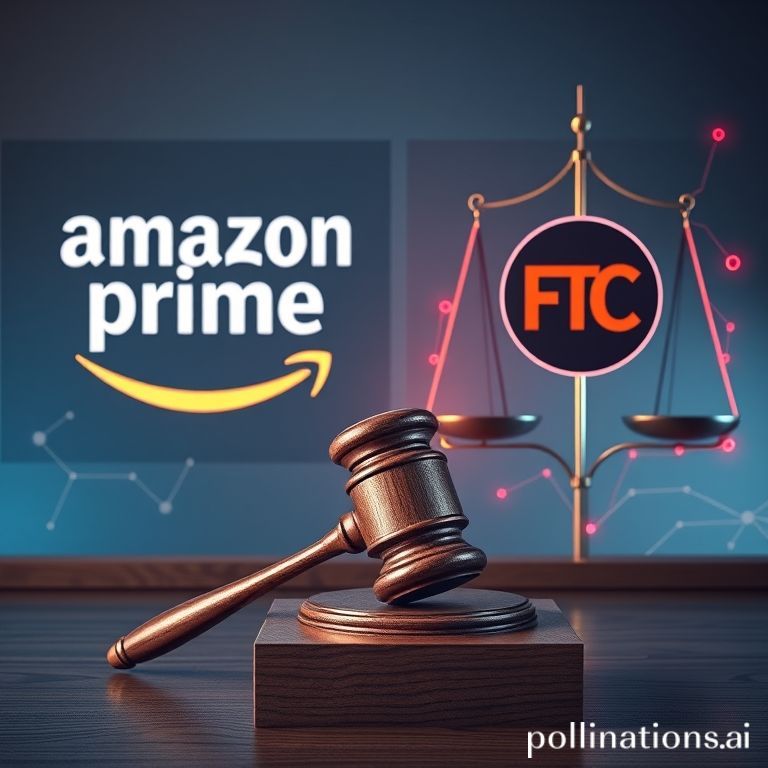
A significant legal battle is unfolding between e-commerce giant Amazon and the Federal Trade Commission (FTC), with both parties scheduled to present their opening arguments this Tuesday, September 23rd. At the heart of the dispute are allegations by the FTC that Amazon engaged in deceptive practices, purportedly tricking consumers into enrolling in its popular Prime membership program and subsequently making the cancellation process unduly difficult.
Allegations of Deceptive Enrollment and Onerous Cancellations
The trial, which commenced with jury selection on Monday, September 22nd, is anticipated to run for approximately one month. The FTC's complaint details specific instances of alleged deception. According to the regulatory body, Amazon employed a button on its website that, while appearing to finalize a transaction, simultaneously enrolled users in the Prime membership without explicit, clear consent. This subtle mechanism, the FTC argues, led many customers to unwittingly subscribe to the service.
Furthermore, the complaint heavily criticizes Amazon's Prime cancellation procedure, describing it as an intentionally cumbersome and labyrinthine process. The FTC asserts that users seeking to cancel their memberships were forced to navigate through a minimum of four distinct web pages and confront a staggering 15 different options, creating a significant barrier to disengagement from the service. Such a complex process, the regulator claims, is designed to deter cancellations and retain subscribers against their will.
Amazon's Stance: Transparency and Customer Choice
In response to these serious accusations, Amazon has vehemently denied any wrongdoing. The company maintains that its enrollment and cancellation processes for Prime memberships are, and have always been, clear, straightforward, and transparent. Amazon argues that customers are fully aware of their choices when signing up for or opting out of the service. The e-commerce giant also points out that given the immense popularity and vast user base of its Prime program, it is statistically inevitable that a small percentage of customers will, for various reasons, voice complaints. Amazon suggests these complaints do not indicate systemic deception but are rather an expected outcome for a service of Prime's scale.
A Broader FTC Campaign Against "Dark Patterns"
The lawsuit against Amazon is not an isolated incident but rather a prominent part of a wider, ongoing campaign by the FTC. This campaign specifically targets what the regulator refers to as deceptive subscription cancellation policies across various industries. This regulatory push has seen continuity across different presidential administrations, having initially begun its investigation into Amazon Prime under the first Trump administration, with the formal lawsuit being filed during the Biden administration.
The FTC's commitment to combating "dark patterns"—design choices that trick users into doing things they might not want to do—is evident in other recent legal actions. In April, the agency filed complaints against Uber concerning its Uber One subscription service. The FTC alleged that Uber charged consumers for the service without proper consent, failed to deliver on promised savings, and similarly made the cancellation process unreasonably difficult. Uber, in its defense, stated that its processes adhere to "the letter and spirit of the law."
Another notable target of this regulatory scrutiny is LA Fitness. In August, the FTC filed a complaint against the gym chain, alleging that it made it "exceedingly difficult" for members to cancel their gym memberships. Fitness International, LA Fitness's parent company, issued a statement in August 2025, dismissing the allegations as "without merit." The company further contended that the Restore Online Shoppers’ Confidence Act (ROSCA), which the FTC cited in its complaint, applies exclusively to online transactions and does not dictate specific methods for cancellation, thereby challenging the FTC's interpretation of the law's applicability in this context.
Implications for the Subscription Economy
The outcome of the Amazon Prime trial, along with these other related cases, is expected to have far-reaching implications, extending well beyond the immediate parties involved. Experts suggest that the FTC's aggressive stance against what it perceives as deceptive subscription practices could fundamentally reshape how subscription models operate across numerous sectors. The focus on transparent enrollment and simplified cancellation mechanisms could prompt a significant re-evaluation of current business practices, particularly concerning how companies onboard and allow customers to exit recurring services. This legal precedent could force businesses to prioritize user-friendly interfaces and clear communication over potentially manipulative design elements, ultimately enhancing consumer protection in the burgeoning subscription economy.
